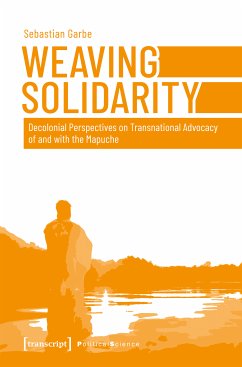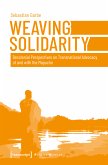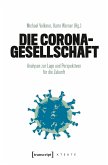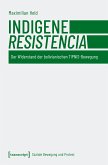In the Global South, Indigenous and Native people continue to live under colonial relations within formally independent nation-states. Sebastian Garbe offers a critical perspective on contemporary expressions of international solidarity and transnational advocacy. He combines approaches from critical race and decolonial studies with an activist ethnography on networked spaces of encounters created through solidarity activism by Mapuche and non-Mapuche actors. Departing from those experiences, this book not only presents potential pitfalls of transnational advocacy but suggests new ways of understanding and practicing solidarity.
Dieser Download kann aus rechtlichen Gründen nur mit Rechnungsadresse in A, D ausgeliefert werden.









